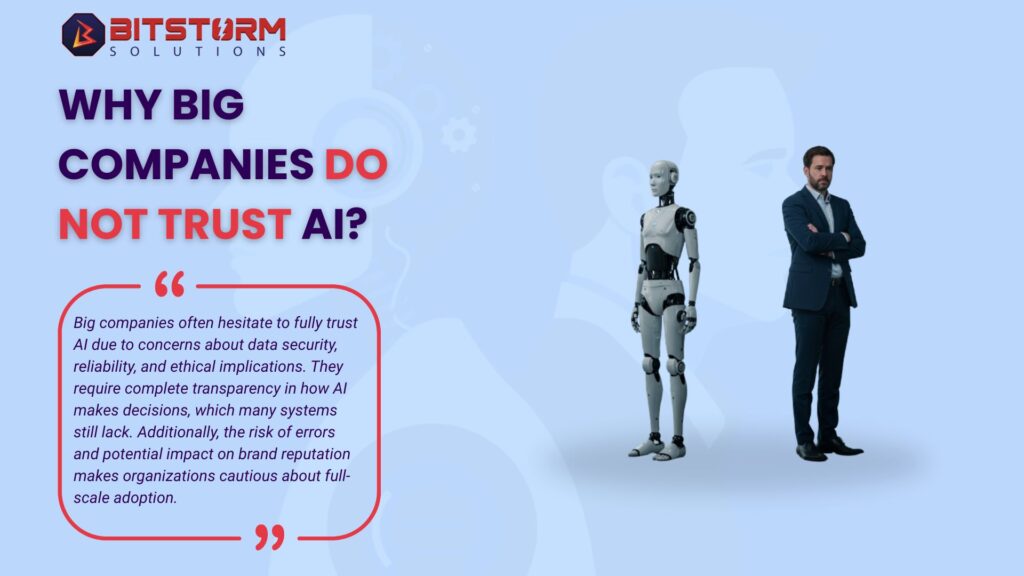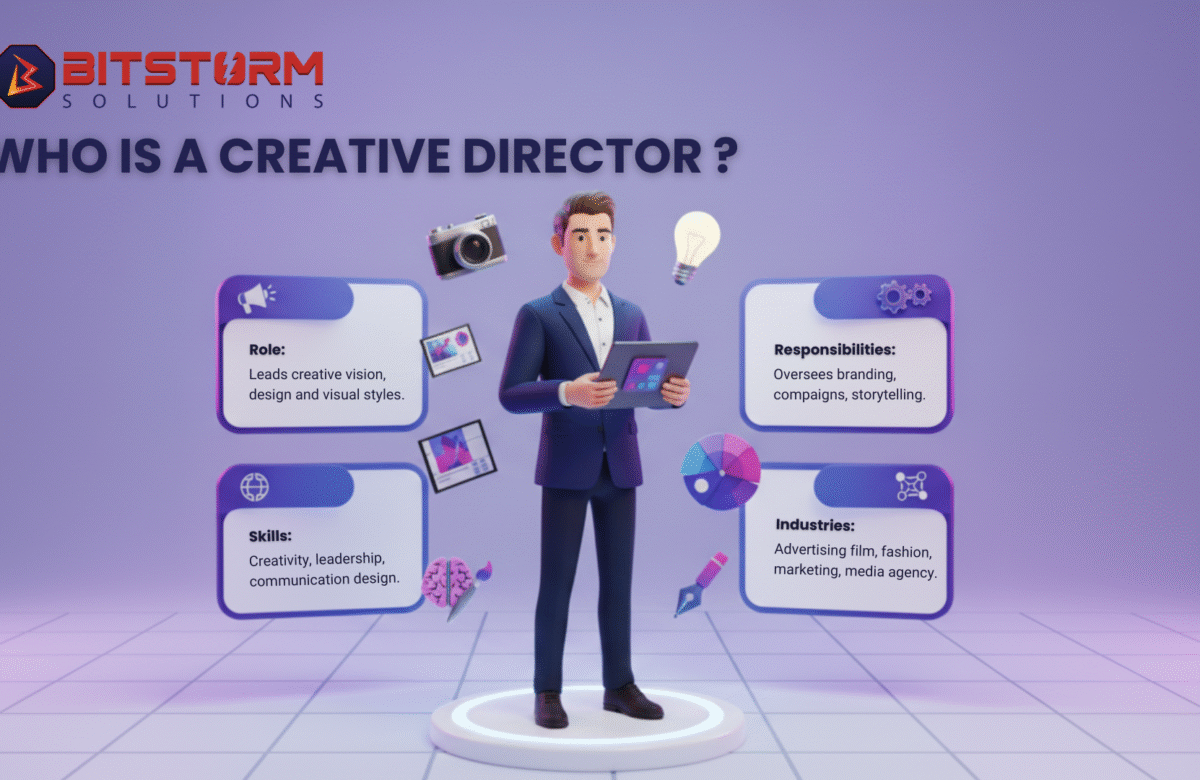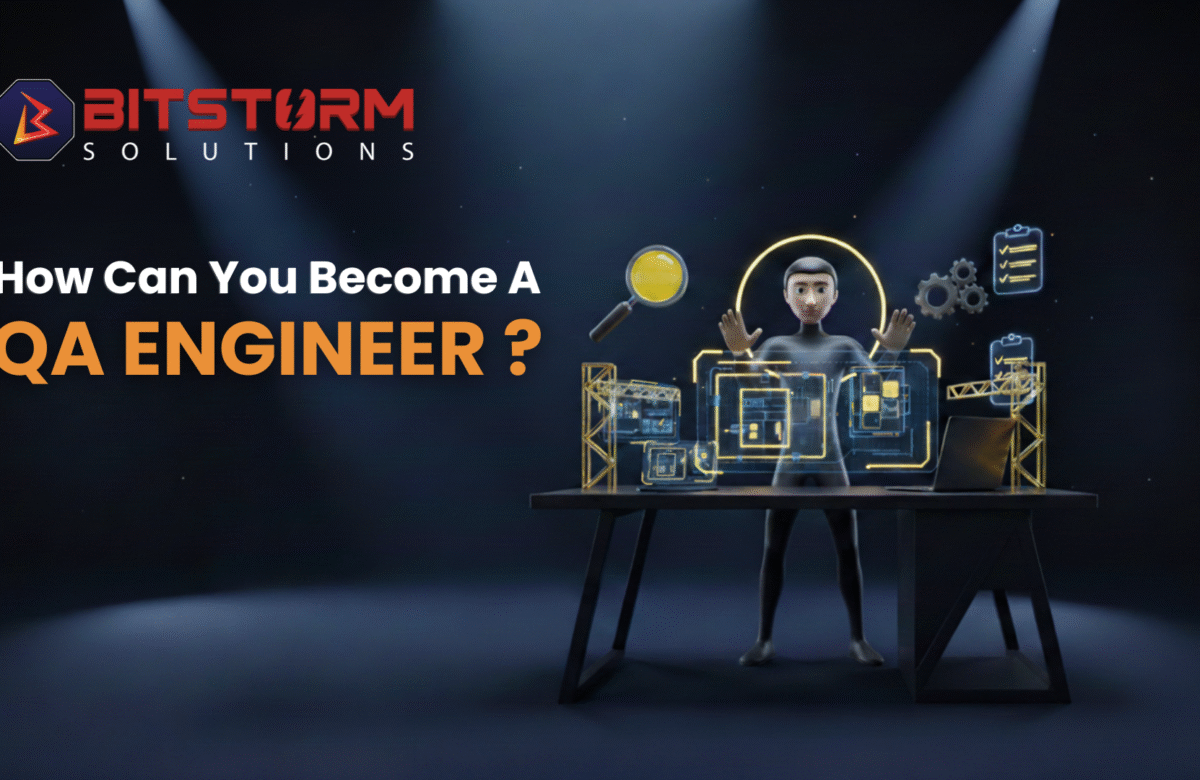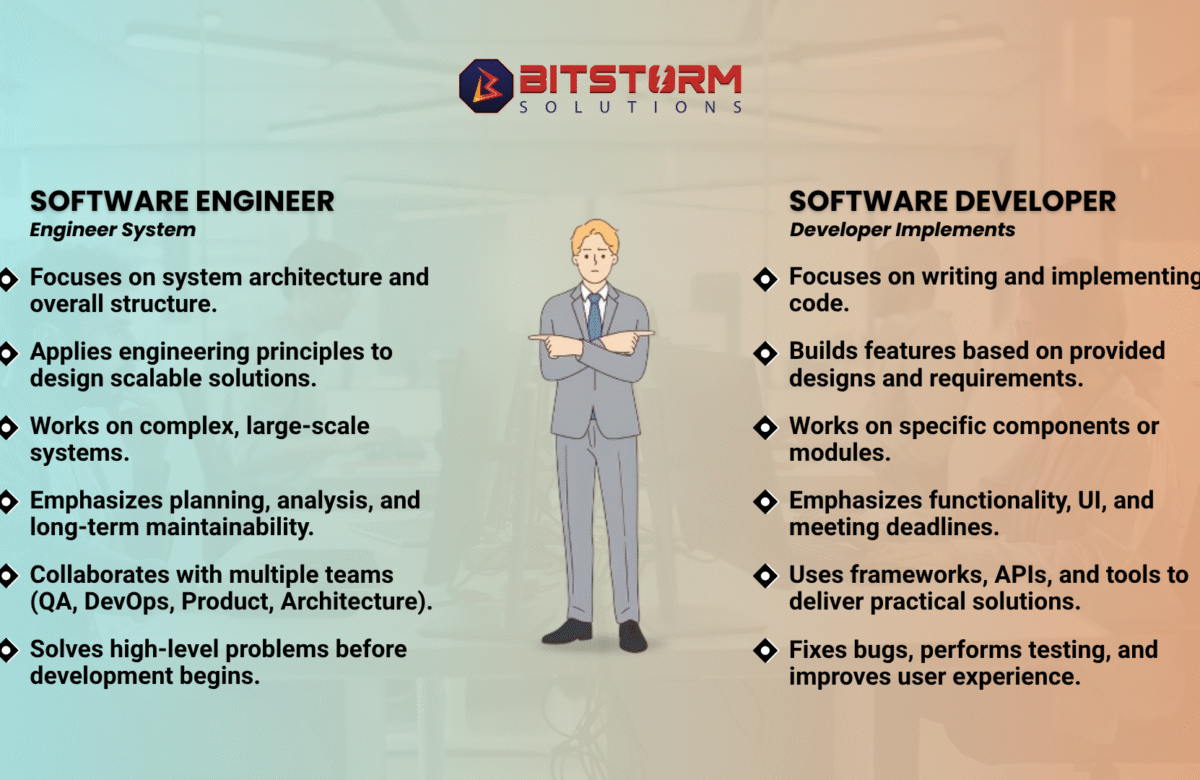
Why Big Companies Still Don’t Trust AI?
Artificial Intelligence (AI) has become one of the most powerful tools driving modern business transformation. From automating operations to predicting customer behavior, AI promises efficiency, precision, and growth. Yet, despite its undeniable potential, many large organizations continue to approach it with caution. The question is why?
1. Data Safety Concerns
Big companies manage vast amounts of sensitive information, customer data, financial records, and intellectual property. Any error, system failure, or security breach involving AI can cause serious damage to its reputation and trust. For organizations that rely heavily on data integrity, even a small AI misstep can lead to huge consequences.
2. Lack of Transparency
One of the major challenges with AI is its “black box” nature. It can make highly accurate predictions, but it often doesn’t explain how it reaches those conclusions. For large corporations, understanding the logic behind every decision is crucial. Without transparency, it becomes difficult for executives to trust AI-driven recommendations or outcomes.
3. Risks and Implementation Costs
Integrating AI into complex corporate systems isn’t just a technical challenge; it’s a financial one. High setup costs, continuous maintenance, and the risk of biased or inaccurate outputs make adoption a slow process. Moreover, employees often fear that AI might replace their roles, creating resistance and cultural barriers within organizations.
Conclusion
Big companies don’t distrust AI because of what it can do; they hesitate because of what might go wrong. As AI becomes safer, more transparent, and better aligned with human oversight, trust will naturally grow.
The future of AI in business isn’t about replacing human intelligence; it’s about strengthening it with smarter, more accountable technology.
The future of retail will belong to those who leverage intelligence, not assumptions.



